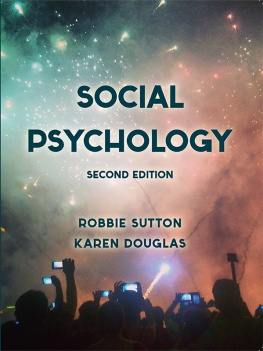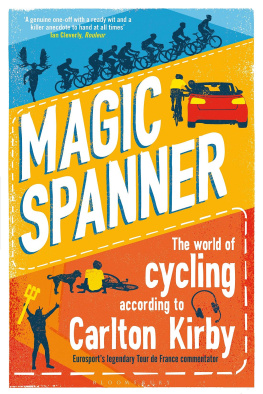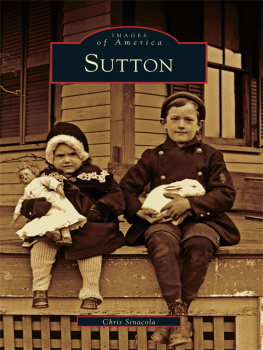Robbie Sutton - Social Psychology
Here you can read online Robbie Sutton - Social Psychology full text of the book (entire story) in english for free. Download pdf and epub, get meaning, cover and reviews about this ebook. publisher: Macmillan Education UK, genre: Politics. Description of the work, (preface) as well as reviews are available. Best literature library LitArk.com created for fans of good reading and offers a wide selection of genres:
Romance novel
Science fiction
Adventure
Detective
Science
History
Home and family
Prose
Art
Politics
Computer
Non-fiction
Religion
Business
Children
Humor
Choose a favorite category and find really read worthwhile books. Enjoy immersion in the world of imagination, feel the emotions of the characters or learn something new for yourself, make an fascinating discovery.
- Book:Social Psychology
- Author:
- Publisher:Macmillan Education UK
- Genre:
- Rating:4 / 5
- Favourites:Add to favourites
- Your mark:
- 80
- 1
- 2
- 3
- 4
- 5
Social Psychology: summary, description and annotation
We offer to read an annotation, description, summary or preface (depends on what the author of the book "Social Psychology" wrote himself). If you haven't found the necessary information about the book — write in the comments, we will try to find it.
Social Psychology — read online for free the complete book (whole text) full work
Below is the text of the book, divided by pages. System saving the place of the last page read, allows you to conveniently read the book "Social Psychology" online for free, without having to search again every time where you left off. Put a bookmark, and you can go to the page where you finished reading at any time.
Font size:
Interval:
Bookmark:

Robbie Sutton and Karen Douglas, under exclusive licence to Springer Nature Limited 2020
All rights reserved. No reproduction, copy or transmission of this publication may be made without written permission.
No portion of this publication may be reproduced, copied or transmitted save with written permission or in accordance with the provisions of the Copyright, Designs and Patents Act 1988, or under the terms of any licence permitting limited copying issued by the Copyright Licensing Agency, Saffron House, 610 Kirby Street, London EC1N 8TS.
Any person who does any unauthorized act in relation to this publication may be liable to criminal prosecution and civil claims for damages.
The authors have asserted their rights to be identified as the authors of this work in accordance with the Copyright, Designs and Patents Act 1988.
This edition published 2020 by
RED GLOBE PRESS
Previous editions published under the imprint PALGRAVE
Red Globe Press in the UK is an imprint of Springer Nature Limited, registered in England, company number 785998, of 4 Crinan Street, London, N1 9XW.
Red Globe Press is a registered trademark in the United States, the United Kingdom, Europe and other countries.
ISBN 9781137526632 paperback
This book is printed on paper suitable for recycling and made from fully managed and sustained forest sources. Logging, pulping and manufacturing processes are expected to conform to the environmental regulations of the country of origin.
A catalogue record for this book is available from the British Library.
A catalog record for this book is available from the Library of Congress.
To Jamie and Rose
ABOUT THE AUTHORS

Robbie Sutton was born in Wellington, New Zealand and completed undergraduate degrees in English, philosophy and psychology at Victoria University of Wellington, and went on to study for his PhD there. He has had teaching positions at Massey University (NZ), Keele University (UK) and now the University of Kent, where he is Professor of Social Psychology. He has published extensively on topics such as justice, inequality, gender and sexism, causal explanation, and attitudes to science. He has been Associate Editor for the Journal of Experimental Social Psychology and the British Journal of Social Psychology, and has served on the editorial boards of the European Journal of Social Psychology and the Journal of Language and Social Psychology. With Matthew Hornsey and Karen Douglas, Robbie edited Feedback: The Communication of Praise, Criticism and Advice. He is a Fellow of both the Society of Experimental Social Psychology and the Association for Psychological Science.

Karen Douglas was born in Blackburn, England and grew up in the Hunter Valley, Australia. She completed her undergraduate degree in psychology at the University of Newcastle, Australia and her PhD in social psychology at the Australian National University. Karen went back to the UK to take up a lectureship at Keele University and later moved to the University of Kent where she is now a Professor of Social Psychology. Her research primarily focuses on the psychology of conspiracy theories and in particular the political and social consequences of believing in conspiracy theories. She also studies the effects of communication technology on social interaction. Karen has been Co-Editor of the British Journal of Social Psychology, and an Associate Editor for the European Journal of Social Psychology, Social Psychology, the British Journal of Social Psychology and Personality and Social Psychology Bulletin. She is a Fellow of both the Society of Experimental Social Psychology and the Association for Psychological Science.
BRIEF CONTENTS
CONTENTS
LIST OF FIGURES
Two ways that variables can combine to produce effects
The different sub-topics of social psychology
Practising the cello for pleasure or reward?
A Dalmatian emerges as a whole, at once
An example of a Lewinian force field
The scientific method
Survey questionnaires
Interviews
Sampling
fMRI scans of the brain
Self-schematic versus aschematic individuals
Multiple role theory
The effect of private self-awareness on emotional responses to reading positive and negative statements
Stealing sweets
The anterior cingulate cortex
Self-discrepancy theory
Carver and Scheiers (1981) control theory of self-regulation
Students self ratings over time
Causal sequence suggested by the sociometer theory of self-esteem
Public versus private self-presentation and the self-concept
Illustration of the logic behind Wegner and Wheatleys (1999) experiment
Independent and interdependent self-construals
Collectivists and individualists compared
Kelleys (1967) covariation model of social attribution
Correspondent inference theory
Demonstration of correspondence bias
The actor-observer effect
BIAS map
The Big Two in social cognition
First impressions
The influence of appearance on ratings of stimulus people
Hiring other-sex or same-sex candidates
The conjunction fallacy related to chronotype
Attributional processes underlying the availability heuristic
The cheating boyfriend
Barghs (1994) four horsemen of automaticity
The Schwartz value circumplex (or wheel)
The tripartite (or ABC) model of attitudes
Mere exposure effect
The effect of number of exposures on attitudes
Subliminal conditioning
Genetic factors in attitude formation
An unbalanced and a balanced triad
Applause as a shared reality
Brain activation patterns associated with evaluations of health and safety videos
Effects of affirming versus negating stereotypes
Eye-tracking heat maps reveal effects of attitude strength (elaboration) on information search
The theory of planned behaviour
The phenomenon of cognitive dissonance
The affect of cognitive dissonance
Depiction of Egan et al.s (2010) study
Investigating embodied social cognition
Receiving a Botox injection
Use of feelings as information in making social judgements
Relationship between political orientation and moral foundations
The power of indirect language
Questionnaire design influences how participants respond
Cultural frame switching
Reversal of the linguistic bias
Nonverbal communication is communication without words
Levels of communication distance
The role of culture and innate factors in the display of emotional facial expressions
Attitude change (persuasion) achieved by likeable and unlikeable communicators
Attractiveness sells
The sleeper effect
Consistency of message with existing attitudes
Effectiveness of two-sided arguments
Do first or last impressions count?
Attitude change for easy or difficult messages
The power of central cues
The elaboration likelihood model
The effects of message strength and distraction on persuasion
Saying no
Resisting persuasion by generating counterarguments
Original and manipulated photos
Familiarity increases the likelihood of attraction
Next pageFont size:
Interval:
Bookmark:
Similar books «Social Psychology»
Look at similar books to Social Psychology. We have selected literature similar in name and meaning in the hope of providing readers with more options to find new, interesting, not yet read works.
Discussion, reviews of the book Social Psychology and just readers' own opinions. Leave your comments, write what you think about the work, its meaning or the main characters. Specify what exactly you liked and what you didn't like, and why you think so.













